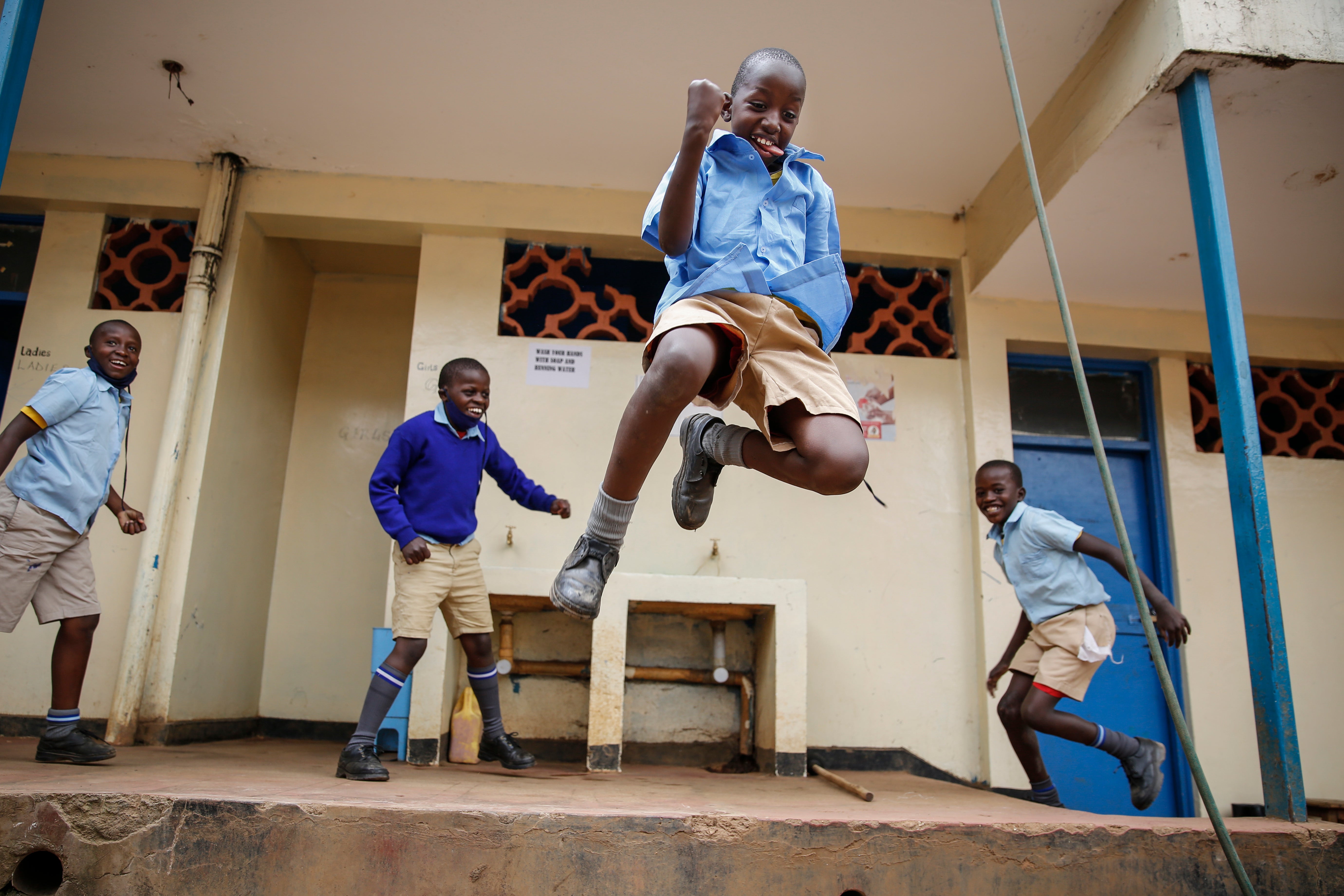As schools reopen in Africa, relief is matched by anxiety
As schools reopen in some African countries after months of lockdown, relief is matched by anxiety over everything from how to raise tuition fees amid the financial strain wrought by the COVID-19 pandemic to how to protect students in crowded classrooms

One cash-strapped parent asked to pay her child's school tuition fees with bags of the rice she grows, leading headmaster Mike Ssekaggo to request a sample before he would agree. Eventually he did.
Many other parents in African countries, unable to pay in cash or kind, say their children will have to miss the new term as classes resume after months of delay caused by the COVID-19 pandemic.
Ssekaggo, headmaster of Wampeewo Ntakke Secondary School on the outskirts of Uganda's capital, Kampala, has fielded complaints from parents scrambling to have their children enrolled for the first time since March.
Relief over the gradual reopening of schools is matched by anxiety over the financial strain caused by the pandemic and over how to protect students in often crowded classrooms from the coronavirus.
Only about half of 430 students had reported the day after he began admitting students for the new term, Ssekaggo told The Associated Press.
School officials worry some children might not return to class because their parents have not been working, Ssekaggo said.
In Uganda, authorities have set standards that schools must meet before they can admit students, most of whom could remain at home until as late as next year. Schools must have enough handwashing stations and enough room in classrooms and dorms for social distancing.
Although the pandemic has disrupted education around the world, the crisis is more acute in Africa, where up to 80% of students don’t have access to the internet and distance learning is out of reach for many.
Sub-Saharan Africa already had the highest rates of children out of school anywhere in the world, with nearly one-fifth of children between 6 and 11 and more than one-third of youths between 12 and 14 not in school, according to the U.N. culture and education agency.
Although schools now have reopened in many African countries that had imposed anti-COVID-19 lockdowns, the pandemic's full impact on education in the world's most youthful continent of over 1.3 billion people remains to be seen.
In some cases, the decision to reopen remains problematic, especially as the level of testing remains low.
“One of the things that we have been discussing is how do we monitor the situation in schools where we have large numbers of students," said Dr. Rashid Aman, Kenya's chief administrative secretary of health. “I think definitely we will require to be doing some level of testing in those populations to see whether there is transmission of asymptomatic cases.”
As in Uganda, Kenya is implementing a phased reopening of schools. Students taking exams to move to upper grade school, high school and college reported in October. The rest will return in January, but there is widespread concern that schools were reopened too early as some have reported outbreaks.
Similar challenges are reported in Zimbabwe, the cash-strapped southern African nation where more than 100,000 public teachers have been striking since schools reopened, demanding better pay as well as protective gear.
“Results of the disaster happening with unmonitored school children will be with us for a long time,” said Raymond Majongwe, secretary-general of the Progressive Teachers Union of Zimbabwe, warning parents against sending their children to school while teachers are on strike. “Prepare for a baby and drug boom,” he added.
The coronavirus had infected more than 1.9 million Africans and killed more than 45,000 as of Nov. 9. But up to 80% of Africa's virus cases are believed to be asymptomatic, the World Health Organization's Africa director said in September, citing preliminary analysis.
Authorities in Uganda and Kenya are not testing students for the virus before enrollment. John Nkengasong, head of the Africa Centers for Disease Control and Prevention, told reporters Thursday that while his group isn't monitoring schools, “we naturally expect there will be infections.”
At Uganda's Wampeewo Ntakke Secondary School, which had 1,800 students before the outbreak, officials at the gates took the temperatures of arriving students, who also were required to bring at least two masks. Later, a nurse briefed them about safety.
“I think we are safe as per now,” said student Sylvia Namuyomba, pondering the handwashing stations strategically placed across the green lawns.
A stern-looking teacher wearing a face shield patrolled the compound, rebuking students who even momentarily removed their masks.
In one classroom, the masked students sat one per desk instead of the usual three, a measure of the social distancing that will be hard to maintain when hundreds more report back to school early next year.
“We are just leaving it in prayer that by January there will be no COVID," said Vincent Odoi, a teacher of business studies. “Otherwise we won't manage.”
___
Odula reported from Nairobi, Kenya. Farai Mutsaka in Harare, Zimbabwe, contributed.
Bookmark popover
Removed from bookmarks